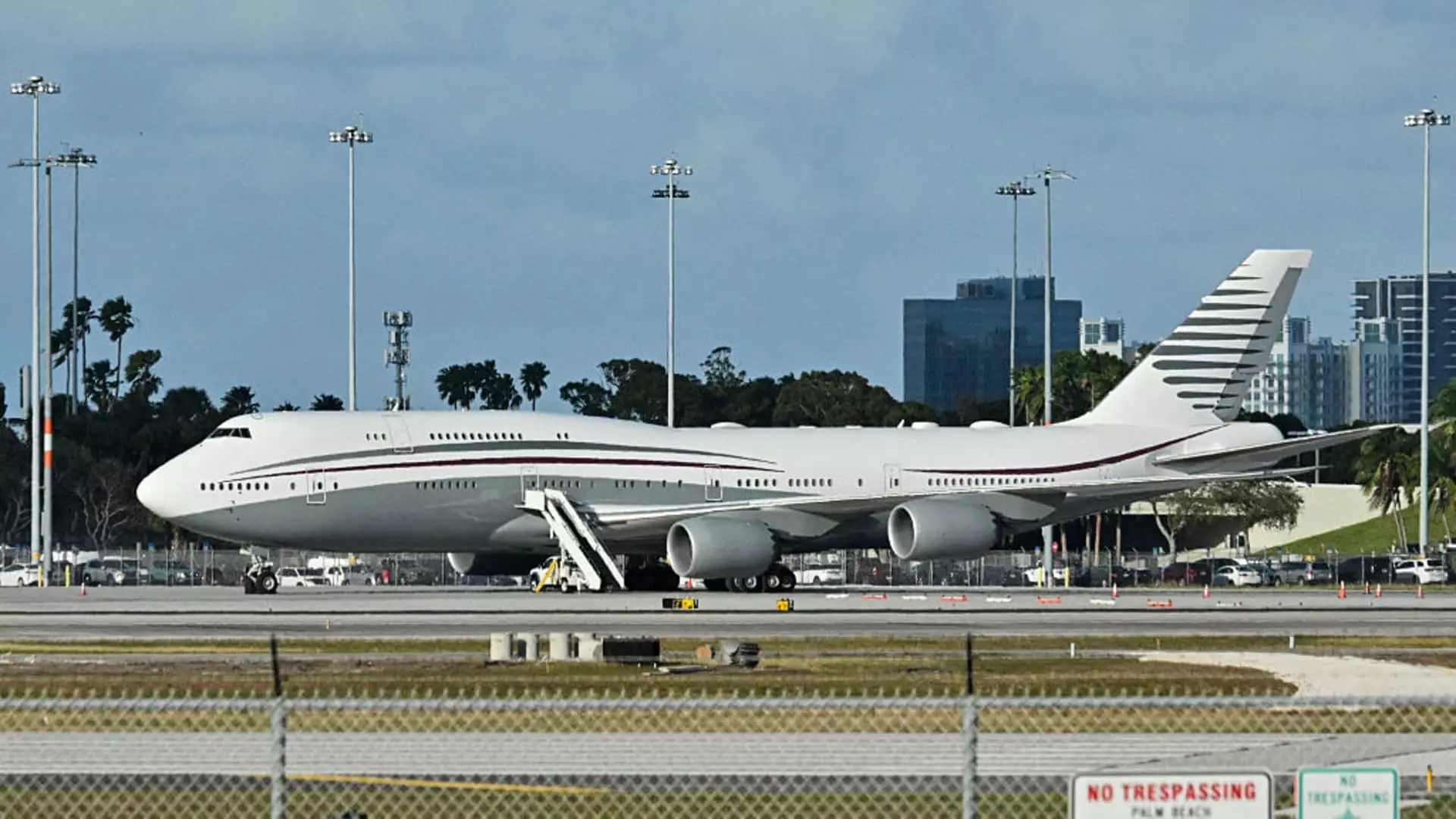The recent acceptance of a luxurious Boeing 747 from Qatar by the Trump administration exemplifies the tumultuous, often scandal-driven nature of the current political landscape. This transaction has stirred a maelstrom of concern across party lines, raising pertinent questions about the ethical dimensions of foreign gifts to a sitting president. To streamline a worrisome narrative, Defense Secretary Pete Hegseth’s endorsement of this jet as a potential replacement for Air Force One has significant political ramifications. It is a precarious layering of international diplomacy and domestic policy, raising eyebrows and igniting fierce debates among lawmakers.
The concept of receiving such a substantial gift from a foreign government is not inherently flawed, but the optics of this specific transaction beg deeper scrutiny. The Pentagon’s assertion that the acceptance was in full compliance with federal regulations lacks the necessary reassurance for a public already skeptical about Trump’s dealings with foreign actors. It feels disingenuous to dismiss concerns about bribery merely because formal rules were adhered to. When critics label an exchange as a bribe, such allegations ought to warrant more than mere dismissal; they demand critical evaluation, given the dominant focus of Trump’s presidency has often been centered around winning and perceived loyalty, sometimes at the expense of established ethical norms.
Security and Practicality at Stake
While it may seem reasonable to acquire an operational aircraft amidst delayed upgrades to the existing Air Force One fleet, the realities unfold a grave situation. Dissecting the figures involved reveals a daunting projection: converting the 13-year-old Qatari jet could burden taxpayers with over $1 billion in costs—an unreasonable sum to spend on what might be a stopgap solution. Rushing to make a political statement or to fulfill the personal whims of leadership is simply not enough justification for such financial expenditure.
Moreover, President Trump’s irritation with Boeing for being “a little late” to deliver the new Air Force One speaks volumes about how he prioritizes image over the thorough and patient approach that a project of this magnitude truly requires. While efficiency and expediency are undoubtedly valuable principles in governance, they should not eclipse a sober consideration for security protocols, regulatory oversight, and fiscal responsibility. The deeper implications of using a jet gifted by a foreign nation underscore more than simply logistics: they euphemize the potential erosion of trust in American institutions.
The Political Fallout
As anticipated, the bipartisan response to this jet acceptance has been a torrent of accusations and responses. Senate Minority Leader Chuck Schumer has emerged as a vocal critic, decrying the transaction as an “unprecedented action” that tarnishes the integrity of the presidency. Such objections demand attention, especially coming from a senator who has proposed legislation to prevent any foreign aircraft from becoming Air Force One in the future. However, the implications extend beyond mere legislative maneuvers; they touch upon the fundamental question of how much any president should bend to the tides of international interests and transactions that may harbor ulterior motives.
Republicans, typically less critical of Trump’s maneuvers, have also begun to voice concerns, with figures like Senator Susan Collins indicating discomfort regarding potential national security risks posed by such elaborate transactions. The fact that divisions exist within the Republican ranks is telling; it suggests that a growing number of political actors recognize that the “free jet” narrative skirts dangerously close to ethical disarray.
Beyond Political Rhetoric
Engaging with these points critically is essential for understanding how they reflect broader societal concerns about governance. In center-wing liberal discussions, one might argue for a balance between pragmatic governance and maintaining ethical standards that resonate with democratic principles. The joy of wielding power does not absolve those in positions of authority from the obligations of transparency, accountability, and integrity.
As the political landscape continues to swirl, the scenario embodies a critical moment for American politics—one where the potency of a foreign nation’s gift illuminates the vulnerabilities in ethical governance. Accepting gifts may seem innocuous on the surface, but the layers of context reveal potential pitfalls that cannot be ignored. The interplay between domestic policy and international relations must be engaged with profound integrity, or risk succumbing to the very forces that threaten the foundations of a well-functioning democracy.


Leave a Reply